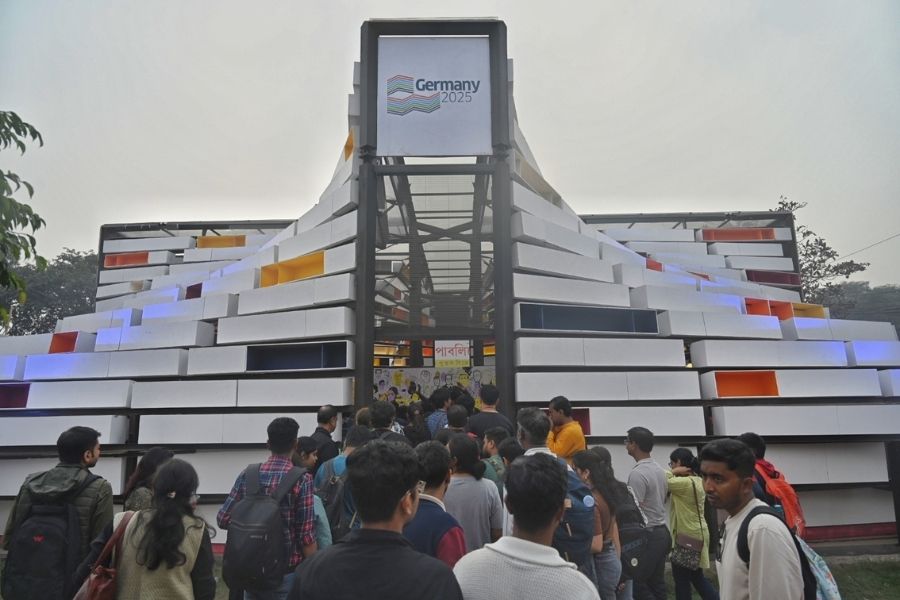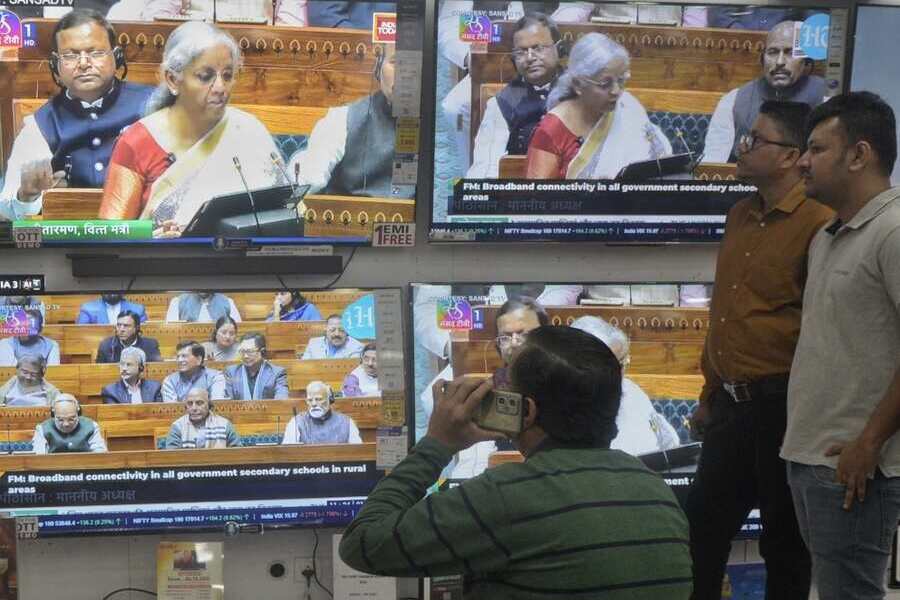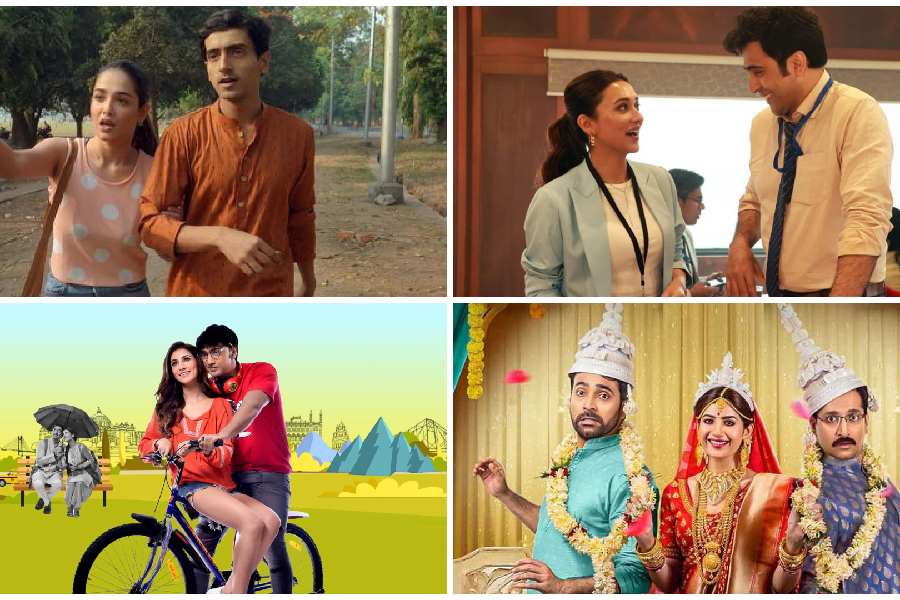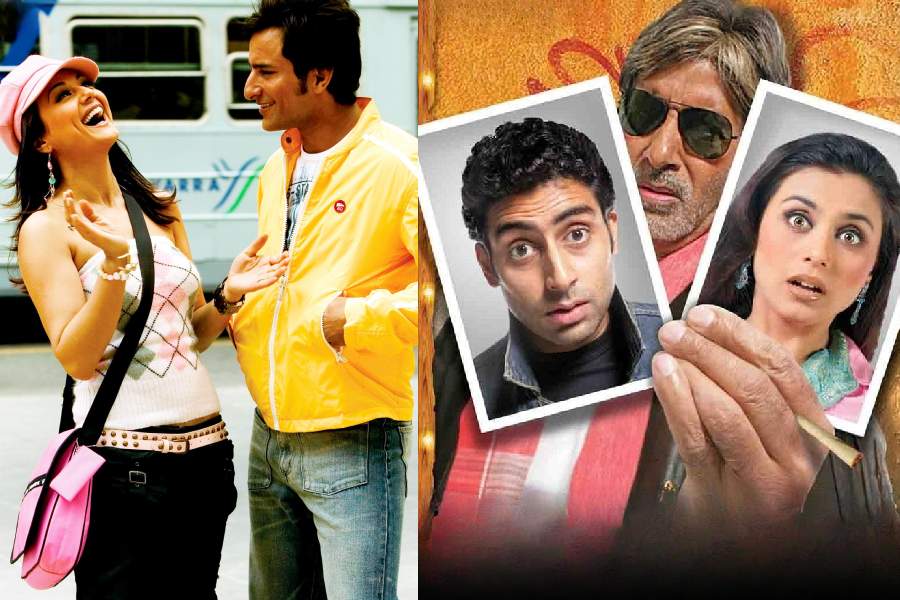 Sunday, 02 February 2025
Sunday, 02 February 2025
 Sunday, 02 February 2025
Sunday, 02 February 2025
On July 2, 1999, 15 queer individuals and allies from across India donned yellow t-shirts adorned with pink triangles and embarked on South Asia’s first rainbow pride march, known as the ‘Friendship Walk ‘99’, in Calcutta. This week, the Bengal capital witnessed a similar scene on a rainy Tuesday morning.
To mark the 25th anniversary of the first Pride March in Calcutta, the Varta Trust, a Calcutta-based gender and sexuality publishing and nonprofit agency, organised a ‘Queer Heritage Walk of Calcutta’.
Initially, 30 people from different parts of India agreed to participate in the walk 25 years ago. Only 15 showed up on the day of the walk, due to fear of media exposure and travel issues.
Not all of them wanted to wear their sexuality on their sleeves (or t-shirts). The event marked a significant moment in India’s queer rights movement. It wouldn’t have been possible without the collective effort of several individuals including gay rights activists and advocates, and different organisations from across India such as the LGBT-India and the Counsel Club and Integration Society. The latter was the first gay support group in Calcutta. Locally, the club did the logistics and the organising of the walk.
Owais Khan, one of the conveners of LGBT-India, took the first initiative to call upon individuals, activists, and change-makers to hold Pride Marches in different parts of the country. The inspiration came from Mahatma Gandhi’s Dandi March against the British colonists. However, the walk almost didn't happen as one by one various cities backed out. The City of Joy was the last one left standing.
As part of the ‘Queer Heritage Walk of Calcutta’ which commemorated the 25th anniversary of ‘Friendship Walk ‘99’, Pawan Dhall, a long-time queer rights activist and one of the original 15, took us on a journey down memory lane.
Park Circus Maidan
“Park Circus Maidan is crucial to the Pride history of Calcutta,” said Dhall. It was the starting point of the 1999 Friendship Walk. The group of 15 gathered in the gazebo and started their historic march from that place. Similarly, in 2003, the walk began from Maidan. The walk concluded in Golpark. The Maidan was the endpoint of the 2005 Pride March. In the later years, this green patch of land has become either the starting point or the end point of various Pride Walks. In recent years, the walk has been starting from the Park Circus area.
Just a year before the first march, in 1998, Deepa Mehta’s queer film ‘Fire’, depicting a lesbian relationship, faced huge protests from right-wing groups across the country. The controversy surrounding the film played a big role in bringing queer issues into the public sphere. It was a bold move to organise such an event in the shadow of such protests.
Queer individuals found each other in newly emerging online spaces such as Yahoo groups. Pride Walk took place because there was a need for friendship, solidarity, and unity amongst the queer folks. It was empowering to be visible in public.
“The Park Circus Maidan was also one of the largest queer cruising zones,” said Dhall. Back then there were no smartphones. People from the queer community used to come to meet at the Maidan. Hence, a lot of socialising used to happen here. In the late ’90s, a story was published in ‘Pravartak’, Counsel Club's house journal, which mentioned a water tank being built up at Maidan. This was one of the first assaults on the greenery here. Pawan Dhall was the founder editor of ‘Pravartak’.
George Smriti Bhavan
After their initial walk in the morning of July 2, 1999, at Park Circus Maidan, they split into two groups, one for north Calcutta and one for south. The teams visited NGOs, government offices, and social activists to engage in dialogue, create awareness and advocate for queer rights.
Later that day, there was a press meeting at George Bhavan.
“We had been very prudent about informing the media. Only one journalist from The Times of India walked with us for a part of the distance,” shared Dhall. Several journalists, television channels, and newspapers showed up and scolded them for not inviting them to the Pride Walk. “Hummein kyu nahi bataya? They asked,” recalled Pawan Dhall. “So we had to do a mock walk or a second walk outside the George Bhavan for the cameras.”
In 1999, an article ‘Chhai chapa Agoon’ was published in a Bengali newspaper, which unlocked the doors to a flood of newcomers to the Counsel Club. Dhall and the other members received more than 3,000 letters from people. They would often conduct meetings with the newcomers at the George Bhavan.
Starlit Garden, Park Street
Pawan Dhall first visited Starlit Garden in 1990. A guy called Sudipto had 300 telephone numbers in his diary. “He was the Internet of those days,” said Dhall. Starlit Garden became a place for queer people to socialise. From 1993 onwards, Dhall and Raj, another co-founder and other members of the Counsel Club started conducting their meetings there. Starlit Garden dates back to the 2nd World War. It has a very colourful past.
Many years later, it had become a family place where men were only allowed to enter if they were accompanied by women. “The one time I had to bring my niece along just to get inside the bar,” recalled Dhall. In the later parts of the ’90s, the Counsel Club members shifted their meetups from Starlit to other bars and restaurants such as Olupub and BarBQ in Park Street.
Earthcare Bookstore and Drive Inn Restaurant
From 1995 onwards, the Counsel Club members started having their meetings at the Drive Inn Restaurant located in the Park Street area. “Drive Inn was an open-air restaurant where we would meet newcomers to the club,” said Dhall. “We planned a letter-writing campaign and a signature campaign against the archaic colonial-era Section 377 of the Indian Penal Code when the first petition against the act was filed in Delhi HC,” added Dhall.
“Hence, Drive Inn was a place for lots of community gatherings, one-on-one meetings, and sometimes a place for romance,” smiled Dhall. “The charm of the place is that it has a bookstore which was called Classic Books earlier. Now the bookstore is a part of Earthcare Books which is based in Mumbai,” added Dhall.
In 1995, one of the Counsel Club members had a chance to meet with the then manager of the bookshop who turned out to be a well-wisher and supporter of the LGBT community ((the expression popular in those days). He invited the members to stock copies of ‘Pravartak’ at the shop. So copies were stocked here from 1995 till 1998. Words spread around when an ABP journalist came to know that copies of ‘Pravartak’ were being stocked here. A lot of people then started visiting the bookstore. A lot of them would come here just in the hope of meeting another queer person.
“The day, July 2, 1999, was burned into my memory. It was wonderful and I am reliving those moments so I am happy that this (Queer Heritage Walk) happened,” said Owais Khan. Commemorating the 25th anniversary of the ‘99 Friendship Walk was a nostalgic affair.
A quarter-century has passed since that first walk, and India has seen significant transformations during this time. In 1999, Calcutta became home to Sappho, the first group for lesbian and bisexual women. Transgender activism has progressed, leading to the introduction of a transgender rights bill in Parliament. Section 377 has been abolished. Pride parades now occur in both large and small cities every year.
In the modern day, when many think that the queer movement is identical to gay parties and at a time when getting potential partners has been made easy with just one click on an app, the Friendship Walk ’99 is a reminder of the hardships and struggles of the queer individuals of the 90s. They were trying to build a community from scratch.







